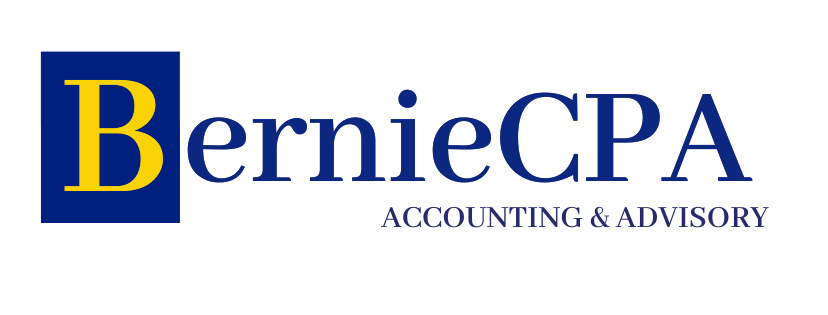From Profit to Paycheck: Navigating the Process of Paying Yourself as an LLC
As a limited liability company (LLC) owner, it’s important to understand the basics of paying yourself. Unlike a traditional employee, LLC owners have more flexibility in how they pay themselves. However, it’s crucial to follow certain guidelines and regulations to ensure that you are paying yourself in a legal and responsible manner. When you form an LLC, you are essentially creating a separate legal entity that is distinct from its owners. This means that the LLC’s profits and losses are typically passed through to the owners, who report them on their personal tax returns. As an LLC owner, you can pay yourself through a variety of methods, including taking a salary, receiving distributions, or a combination of both. It’s important to consult with legal and financial professionals to determine the best approach for paying yourself as an LLC owner.
In addition to understanding the legal and financial implications of paying yourself as an LLC owner, it’s also important to consider the impact on your personal finances. When you pay yourself as an LLC owner, you may be subject to self-employment taxes, which can impact your overall tax liability. It’s important to carefully consider the tax implications of paying yourself and to work with a qualified accountant or tax professional to ensure that you are in compliance with all relevant tax laws and regulations. By understanding the basics of paying yourself as an LLC owner, you can make informed decisions that will benefit both your business and your personal financial situation.
Determining Your Salary as an LLC Owner
One of the key decisions you’ll need to make as an LLC owner is determining your salary. Unlike traditional employees who receive a regular paycheck, LLC owners have more flexibility in how they pay themselves. When determining your salary as an LLC owner, it’s important to consider several factors, including the financial health of your business, your personal financial needs, and any legal or tax implications. It’s also important to consider the impact of your salary on your business’s cash flow and overall financial stability. By carefully considering these factors, you can determine a salary that is both fair to you as the owner and sustainable for your business.
In addition to considering the financial and legal implications of determining your salary as an LLC owner, it’s also important to consider the impact on your personal finances. Your salary as an LLC owner will impact your personal tax liability, so it’s important to work with a qualified accountant or tax professional to ensure that you are in compliance with all relevant tax laws and regulations. By carefully considering these factors, you can determine a salary that is both fair to you as the owner and sustainable for your business.
Navigating Tax Implications When Paying Yourself
When it comes to paying yourself as an LLC owner, there are several tax implications that you’ll need to navigate. Unlike traditional employees who receive a W-2 form and have taxes withheld from their paychecks, LLC owners are responsible for paying their own taxes. This means that you’ll need to carefully consider the tax implications of paying yourself and work with a qualified accountant or tax professional to ensure that you are in compliance with all relevant tax laws and regulations. One of the key tax implications of paying yourself as an LLC owner is self-employment taxes. As an LLC owner, you are considered self-employed for tax purposes, which means that you’ll be responsible for paying both the employer and employee portions of Social Security and Medicare taxes. It’s important to carefully consider these tax implications when determining how to pay yourself as an LLC owner.
In addition to self-employment taxes, there are several other tax implications that you’ll need to navigate when paying yourself as an LLC owner. For example, if you choose to take a salary, you’ll need to ensure that you are withholding the appropriate amount of taxes from each paycheck. If you choose to receive distributions instead of a salary, you’ll need to carefully consider the impact on your personal tax liability. By working with a qualified accountant or tax professional, you can navigate these tax implications and ensure that you are in compliance with all relevant tax laws and regulations.
Setting Up a Payroll System for Your LLC
Setting up a payroll system for your LLC is an important step in paying yourself as an LLC owner. A payroll system will help you ensure that you are paying yourself in a legal and responsible manner, while also helping you manage your business’s cash flow and overall financial stability. When setting up a payroll system for your LLC, there are several key steps that you’ll need to take. First, you’ll need to determine whether you want to take a salary or receive distributions, or a combination of both. Once you’ve made this decision, you’ll need to set up a system for processing payroll, including calculating and withholding taxes, issuing paychecks or distributions, and maintaining accurate records.
In addition to setting up a payroll system for your LLC, it’s also important to consider the impact on your business’s cash flow and overall financial stability. Paying yourself as an LLC owner will impact your business’s bottom line, so it’s important to carefully consider the financial implications of setting up a payroll system. By working with a qualified accountant or financial professional, you can ensure that you are setting up a payroll system that is both fair to you as the owner and sustainable for your business.
Exploring Different Methods of Paying Yourself
As an LLC owner, there are several different methods that you can use to pay yourself. One common method is taking a salary, which involves paying yourself a regular paycheck on a set schedule. Another method is receiving distributions, which involves taking money out of the business’s profits on an as-needed basis. You can also use a combination of both methods, depending on your business’s financial health and your personal financial needs. When exploring different methods of paying yourself as an LLC owner, it’s important to carefully consider the legal and financial implications of each method. For example, taking a salary may subject you to self-employment taxes, while receiving distributions may impact your personal tax liability.
In addition to exploring different methods of paying yourself as an LLC owner, it’s also important to consider the impact on your business’s cash flow and overall financial stability. The method that you choose for paying yourself will impact your business’s bottom line, so it’s important to carefully consider the financial implications of each method. By working with a qualified accountant or financial professional, you can explore different methods of paying yourself and determine the best approach for your business.
Considering the Impact on Your LLC’s Finances
When it comes to paying yourself as an LLC owner, it’s important to carefully consider the impact on your business’s finances. Paying yourself will impact your business’s cash flow and overall financial stability, so it’s important to make informed decisions that will benefit both your business and your personal financial situation. By carefully considering the impact on your LLC’s finances, you can ensure that you are paying yourself in a legal and responsible manner while also maintaining the financial health of your business.
In addition to considering the impact on your LLC’s finances, it’s also important to consider the long-term implications of paying yourself as an LLC owner. For example, if you consistently pay yourself too much or too little, it can have a negative impact on your business’s bottom line. By working with a qualified accountant or financial professional, you can carefully consider the impact on your LLC’s finances and make informed decisions that will benefit both your business and your personal financial situation.
Seeking Professional Advice for Paying Yourself as an LLC
Paying yourself as an LLC owner involves complex legal and financial considerations, so it’s important to seek professional advice from qualified experts. Working with a qualified accountant or financial professional can help ensure that you are paying yourself in a legal and responsible manner while also maintaining the financial health of your business. A professional can help you navigate the tax implications of paying yourself, set up a payroll system for your LLC, explore different methods of paying yourself, and consider the impact on your LLC’s finances.
In addition to seeking professional advice from accountants and financial professionals, it’s also important to consult with legal experts who can help ensure that you are in compliance with all relevant laws and regulations. By seeking professional advice for paying yourself as an LLC owner, you can make informed decisions that will benefit both your business and your personal financial situation. Working with qualified experts can help ensure that you are paying yourself in a legal and responsible manner while also maintaining the financial health of your business.
In conclusion, paying yourself as an LLC owner involves complex legal and financial considerations that require careful planning and consideration. By understanding the basics of paying yourself as an LLC owner, determining your salary, navigating tax implications, setting up a payroll system, exploring different methods of payment, considering the impact on your LLC’s finances, and seeking professional advice, you can make informed decisions that will benefit both your business and personal financial situation. It’s important to work with qualified experts who can help ensure that you are paying yourself in a legal and responsible manner while also maintaining the financial health of your business. By carefully considering these factors and seeking professional advice, you can navigate the complexities of paying yourself as an LLC owner and make informed decisions that will benefit both your business and personal financial situation.


